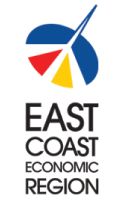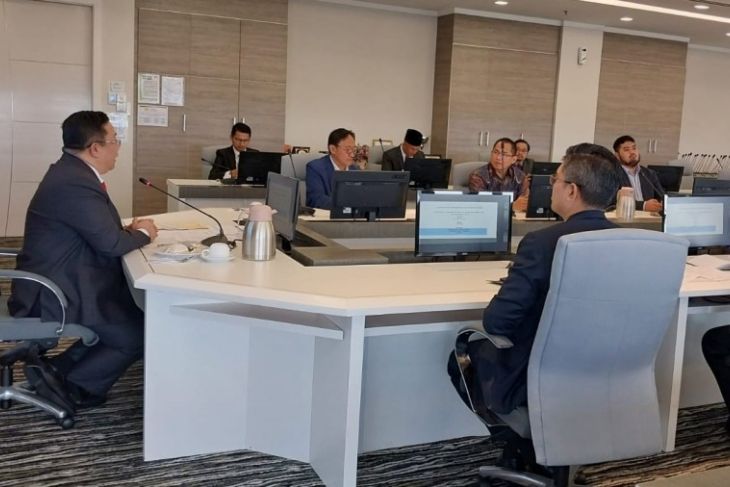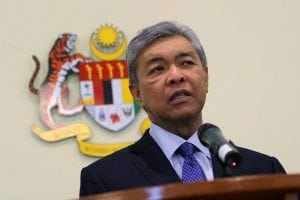 KUALA LUMPUR, Jan 4 (Xinhua) — China’s Ningxia Light and Textile Industrial Bureau, a provincial authority entrusted to promote light industries, on Friday sealed a collaborative agreement with Malaysia’s so-called East Coast Economic Region ECER to explore investment opportunities in the world halal industry.
KUALA LUMPUR, Jan 4 (Xinhua) — China’s Ningxia Light and Textile Industrial Bureau, a provincial authority entrusted to promote light industries, on Friday sealed a collaborative agreement with Malaysia’s so-called East Coast Economic Region ECER to explore investment opportunities in the world halal industry.
The Memorandum of Understanding, which was signed in Kuantan in Malaysia’s Pahang state, covers manufacturing, halal certification, logistics, information sharing policies and research and development targeting industries ranging from processed food, beverage to pharmaceuticals, Muslim garments and cosmetics products.
An ECER spokesman told Xinhua the agreement was at its preliminary stage and concrete details on the level of cooperation would be announced next month when prime minister Najib Razak launches a Malaysia-China joint Industrial Park in Kuantan.
ECER is an economic development corridor based on the east coast of peninsular Malaysia that covers four states.
The 66,000-square-kilometre economic region houses three halal industrial parks for Islamic goods and produce that contribute significantly to a booming 2.13-trillion-U.S. dollar global halal market.
“There is now an international halal superhighway facilitating the cross-border flow of products and services that have a halal lineage. The MoU will boost bilateral trade between Malaysia and China and enable ECER and Ningxia Province to strengthen our respective positions along this lucrative highway,” ECER’s chief executive officer, Jebasingam Issace John said.
He added that the economic region would share its expertise in planning and developing successful halal parks with its Ningxia partner.
Ningxia autonomous region the home of roughly 11 percent of the 20 million Muslims in China has been designated by the Chinese government as a production base for Muslim food.
Second Article
Business Times By Fahirul N.Ramli
KUANTAN: Pahang is set to be a leading regional halal hub under a collaboration between the East Coast Economic Region Development Council (ECERDC) and China’s Ningxia Light and Textile Industrial Bureau (NLTIB).
Ningxia autonomous region in north-central China, with a large concentration of Muslims, has been designated as the production centre for manufacturing halal food products by its government.
NLTIB is the regional authority entrusted with the socio-economic development and industrial monitoring.
Menteri Besar Datuk Seri Adnan Yaakob said the scope of cooperation will cover manufacturing, business matching, halal certification, warehouse and logistics, information sharing policies and research and development.
“Targeted industries include halal meat, biological products, pharmaceuticals and Muslim garments.
“Pahang is well positioned to step-up the development of the halal industry since the focus is on agricultural products.
“We have various commercial agriculture and smallholdings that can benefit from the project,” he said after witnessing the signing of a memorandum of understanding (MOU) between ECERDC and NLTIB here yesterday.
Adnan said the cooperation will strategically contribute towards higher employment and entrepreneur development apart from eradicating poverty.
ECERDC chief executive officer Datuk Jebasingam Issace John said the MOU will boost trade between both nations and enable ECER and Ningxia Province to strengthen positions along the lucrative international halal superhighway.
“According to the World Fair Trade Organisation, the global halal market is estimated to grow at US$2.13 trillion (RM6.49 trillion) annually,” he said.
The seven-member Chinese delegation led by Ningxia Hui Autonomous Region bureau of investment promotion director-general Wang Jing also visited the 80ha Gambang Halal Park (GHP) in the ECER special economic zone near here.
Infrastructure-ready with warehousing, transport and logistics services and amenities, GHP carries the internationally-recognised HALMAS accreditation by Malaysia’s Halal Development Corp to parks that manufacture halal products according to certified standards of quality, integrity and safety.
The latest collaboration followed previous efforts to strengthen ties between both countries which had resulted in the setting up of the Malaysia China Kuantan Industrial Park (MCKIP) near here.
Prime Minister Datuk Seri Najib Razak had announced the establishment of MCKIP last year to reciprocate China’s efforts in setting aside a 55 sq km piece of land in Qinzhou, Nanning, as a joint venture project with Malaysia.
Both GHP and MCKIP are scheduled to be launched by March.



